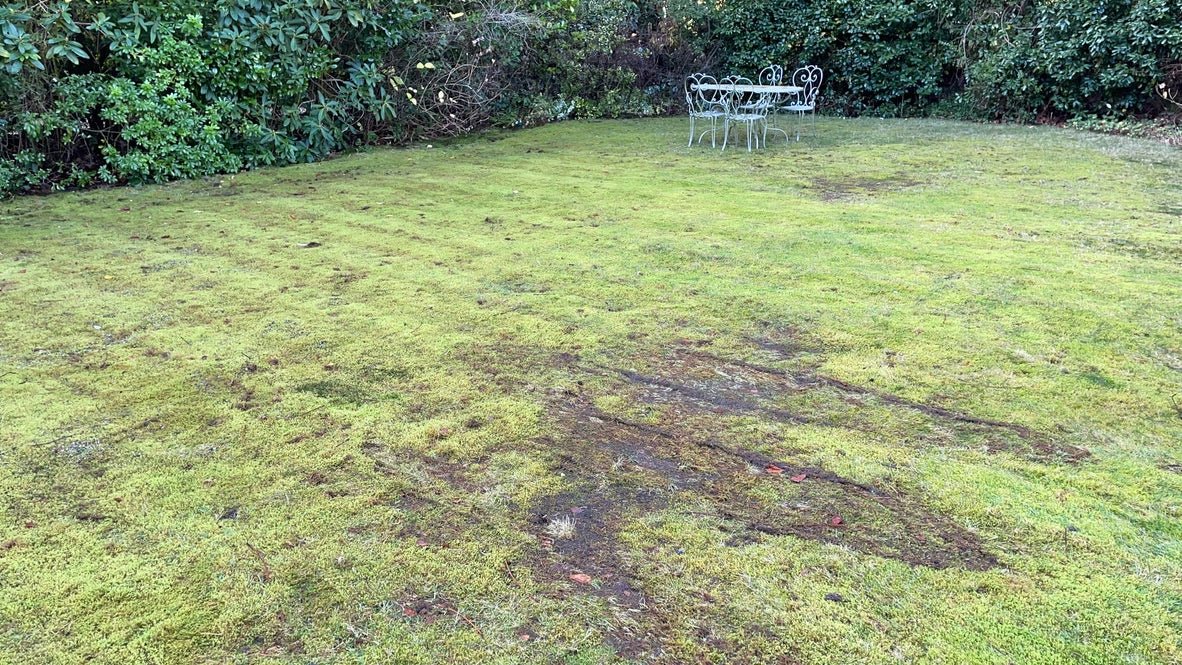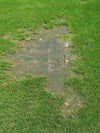
Does Roundup Kill Moss?
Does Roundup Kill Moss? A Comprehensive Guide
Welcome to our comprehensive guide on a question that has been bugging many homeowners and landscape architects alike - "Does Roundup kill moss?" If you've been battling with moss in your lawn, you're not alone. This primitive plant, dating back to prehistoric times, has a knack for thriving in conditions where your beloved grass struggles.
In this blog, we'll delve into the nature of lawn moss, explore the effectiveness of Roundup, a common herbicide, against it, and provide you with practical tips on how to kill existing lawn moss and prevent future growth. We'll also compare Roundup with other moss killers, such as the So & Mo Moss Treatment, to give you a well-rounded understanding of your options.
So, whether you're looking to seed a new lawn or reclaim your existing one from the clutches of moss, this guide is for you. Let's embark on this journey to a moss-free lawn together!
Understanding the Nature of Lawn Moss
Understanding the nature of lawn moss is a crucial step in the journey to reclaim your lawn from this primitive plant. This section will delve into the unique characteristics of lawn moss, shedding light on why it thrives in conditions that are typically challenging for other plants.
We'll explore the resilience of moss, its resistance to common herbicides, and its preference for shady, acidic, and overly moist environments. This knowledge will equip you with the necessary tools to effectively control and prevent the growth of moss in your lawn.
What is Lawn Moss?
Lawn moss is a primitive plant that has been around since prehistoric times. Unlike other plants, it doesn't process water and nutrients in the same way, making it resistant to common herbicides. This is why even powerful weed killers, designed to kill all plant types, often fail to eliminate moss from a lawn.
Moss thrives in conditions that are typically challenging for other plants. It prefers shady areas with acidic, overly moist or compacted soil. These are conditions where grasses struggle, and as a result, moss finds an ideal environment to grow.
It's important to note that moss doesn't force out lawn grasses. Instead, it takes advantage of the conditions where grasses fail. This is why you often find moss in areas of your lawn where the grass is thin or non-existent.
Understanding the nature of lawn moss is the first step towards controlling its growth in your lawn. It's not about killing the moss, but rather about creating conditions that favour the growth of grass over moss. This is where landscape architects and landscape designers can provide valuable advice and assistance.
Why Does Moss Grow in Lawns?
Lawn moss, a primitive plant dating back to prehistoric times, thrives in conditions that are typically challenging for grass. These conditions include shady areas, acidic soil, and overly moist or compacted soil. Unlike more advanced plants, moss doesn't process water and nutrients in the same way, making it resistant to common herbicides.
When grass struggles in these conditions, moss finds an ideal environment to flourish. This is why you often find moss in lawns where grass growth is poor. It's not that the moss is forcing the grass out, but rather that it's taking advantage of the conditions where grass fails to thrive.
Moss isn't like other lawn "weeds." It requires a different approach to control and prevent. Understanding why moss grows in your lawn is the first step towards effective moss control.
How to Kill Existing Lawn Moss
Battling with moss in your lawn can be a frustrating task. It's a stubborn plant that seems to thrive in conditions where your grass struggles. But don't lose hope just yet. In this section, we'll explore how to kill existing lawn moss, focusing on the use of Roundup, a common herbicide, and the necessary safety measures to consider.
Remember, the key to successful moss control lies in understanding the nature of moss and using the right methods to eradicate it. Let's delve into the details and help you reclaim your lush, green lawn from the clutches of moss.
Using Roundup to Kill Moss
The use of Roundup to kill moss has been a topic of debate among garden enthusiasts. Some users have reported that Roundup, a common herbicide, has effectively killed moss in their lawns. However, it's important to note that Roundup is a systemic herbicide, designed to kill weeds by getting into the plant's sap and killing its roots.
Moss, being a non-vascular plant, doesn't have a conventional root system. Therefore, the effectiveness of Roundup on moss is questionable. Some users have reported that their moss turned brown after application, but this could be due to other factors such as weather conditions or the presence of other chemicals in the Roundup mixture.
If you're considering using Roundup to kill lawn moss, it's advisable to test it on a small area first. This will give you an idea of how your particular type of moss reacts to the herbicide. Remember, the goal is to kill the moss without causing unnecessary harm to the surrounding environment.
Safety Measures When Using Herbicides
When it comes to using herbicides like Roundup to kill lawn moss, safety should be your top priority. Herbicides are potent substances that can pose risks if not handled correctly. Here are some safety measures to keep in mind.
Firstly, always wear protective clothing. This includes gloves, long-sleeved shirts, and trousers to prevent skin contact. Eye protection is also crucial to avoid any accidental splashes.
Secondly, ensure you're using the herbicide in a well-ventilated area. If you're treating moss in a confined space, make sure there's adequate airflow. This helps to prevent inhalation of the herbicide, which can cause discomfort or irritation.
Thirdly, accurate application is key. Avoid applying the herbicide on windy days as it can drift and affect non-target plants or areas. Also, be mindful of runoff. Herbicides can contaminate water sources and harm aquatic life.
Safety first. With these measures in place, you can effectively kill lawn moss using Roundup or any other common herbicide.
Preventing Future Lawn Moss
Preventing future lawn moss is a crucial step in maintaining a healthy, vibrant lawn. This section will delve into the various strategies and products that can help you keep moss at bay. From proper lawn maintenance to the use of specialised products like So & Mo Moss Treatment, we'll explore the best ways to prevent lawn moss from taking over your green spaces.
Remember, prevention is always better than cure. By taking proactive steps, you can ensure that your lawn remains moss-free, allowing your grass to grow thick and lush. Let's dive into the details.
Proper Lawn Maintenance to Prevent Moss
Preventing moss from taking over your lawn starts with proper maintenance. It's not just about killing the moss, but creating an environment where it's hard for moss to thrive.
Firstly, ensure your lawn gets plenty of sunlight. Moss loves shady areas, so trim any overhanging branches that might be blocking the sun.
Next, address the issue of soil acidity. Moss thrives in acidic soil, so consider using lime to reduce the acidity and promote healthy grass growth.
Drainage is another key factor. Moss loves moist conditions, so improving areas with poor drainage can help keep moss at bay.
A healthy lawn is your best defence against moss. Regular lawn maintenance goes a long way in keeping your grass strong and moss-free.
The Effectiveness of Roundup on Moss
The question, "Does Roundup kill moss?" is one that has puzzled many gardeners and landscape architects. Roundup, a common herbicide, is often used to kill weeds and unwanted plants, but its effectiveness on moss remains a topic of debate.
In this section, we will delve into the intricacies of how Roundup interacts with moss, comparing it with other moss killers, and exploring the factors that may influence its effectiveness. We aim to provide a comprehensive guide to help you make an informed decision on the best way to manage moss in your garden or lawn.
How Roundup Works on Moss
Roundup, a common herbicide, has a unique way of interacting with moss. Unlike other plants, moss is non-vascular, meaning it doesn't have a traditional root system that absorbs nutrients and water. This characteristic makes it resistant to many systemic herbicides, including Roundup, which work by infiltrating the plant's sap and killing its roots.
However, the effectiveness of Roundup on moss isn't black and white. Some users have reported that Roundup turned their moss brown, giving the impression of death, only for it to rejuvenate after a few months. This could be due to the moss's resilience or perhaps an inaccurate application of the herbicide.
It's also worth noting that Roundup's impact on moss can vary depending on the specific type of moss and its current state. For instance, moss that is already somewhat brown or dry might react differently to Roundup than healthy, green moss.
Comparing Roundup with Other Moss Killers
When it comes to killing moss, Roundup is not the only option available. There are other moss killers on the market that may prove more effective. For instance, some gardeners have found success using vinegar as a natural alternative. The acidity of vinegar can be effective against many weeds, and it doesn't seem to bother the moss. However, it's important to note that the effectiveness of vinegar can vary depending on the type of moss and the specific conditions of your garden.
Another alternative is using a product specifically formulated to kill moss and algae. These products are designed to target moss specifically, and they may be more effective than a general herbicide like Roundup. However, they can also be more expensive and may have a greater environmental impact.
Some gardeners also recommend pulling weeds by hand from moss beds. This method can be time-consuming, but it allows for a more accurate application and can help to preserve the moss. It's also a good way to avoid using chemicals in your garden.
Final Thoughts on Using Roundup to Kill Moss
In conclusion, Roundup may not be the most effective way to kill moss in your lawn. Moss, unlike common weeds, is a non-vascular plant, meaning systemic herbicides like Roundup, which work by infiltrating the plant's sap and killing its roots, have little to no effect on it. However, there are other ways to kill lawn moss and prevent its return.
Products like Lilly Miller Moss Out! are designed specifically to combat moss, and regular lawn maintenance can also help keep your lawn moss-free. Remember, the key to successful moss control is understanding the conditions in which moss thrives and taking steps to alter these conditions in your lawn. By doing so, you can reclaim your turf for thick, green grass instead.
Ready to be proud of your garden?
Ensure your lawn never goes hungry with our personalised feeding plan. Delivered through you letterbox exactly when you need it.





